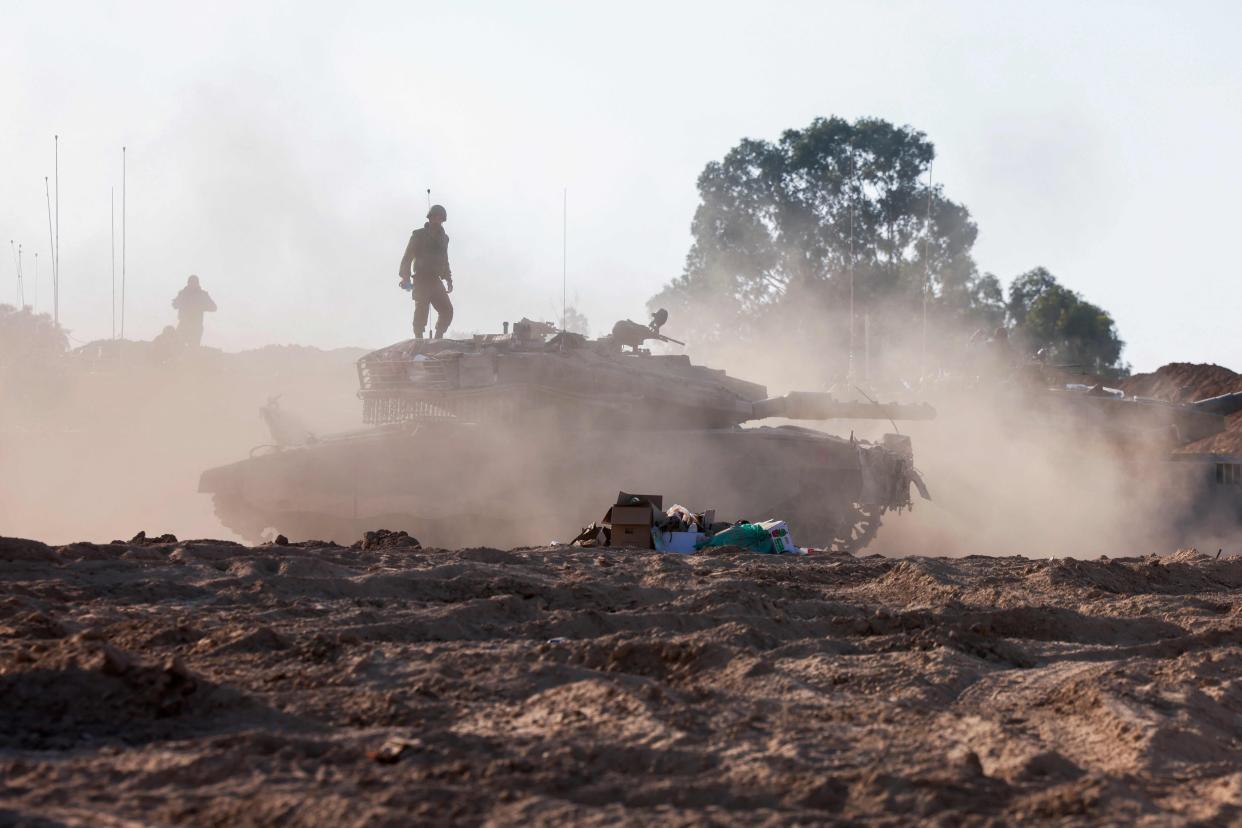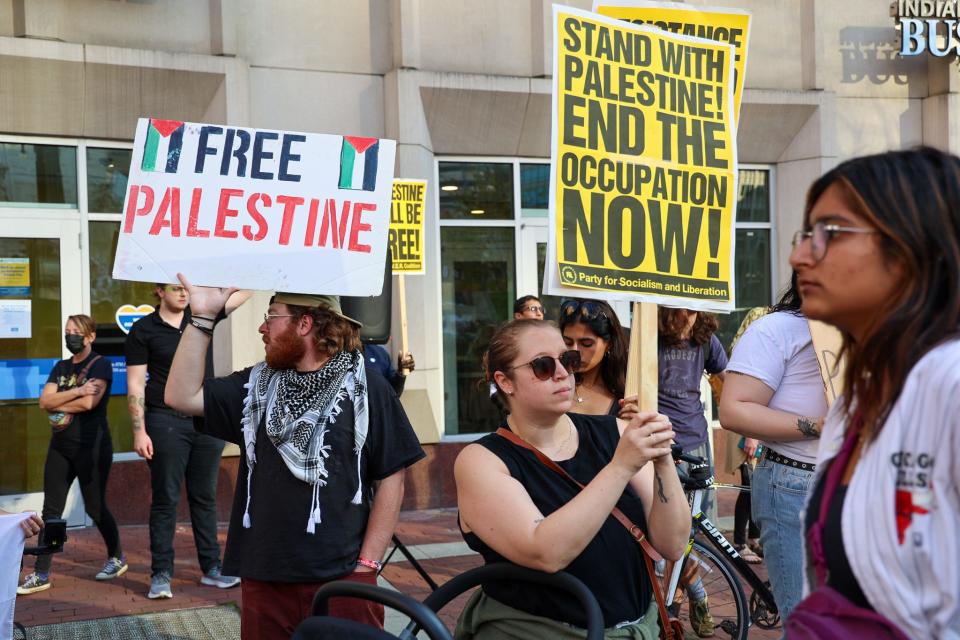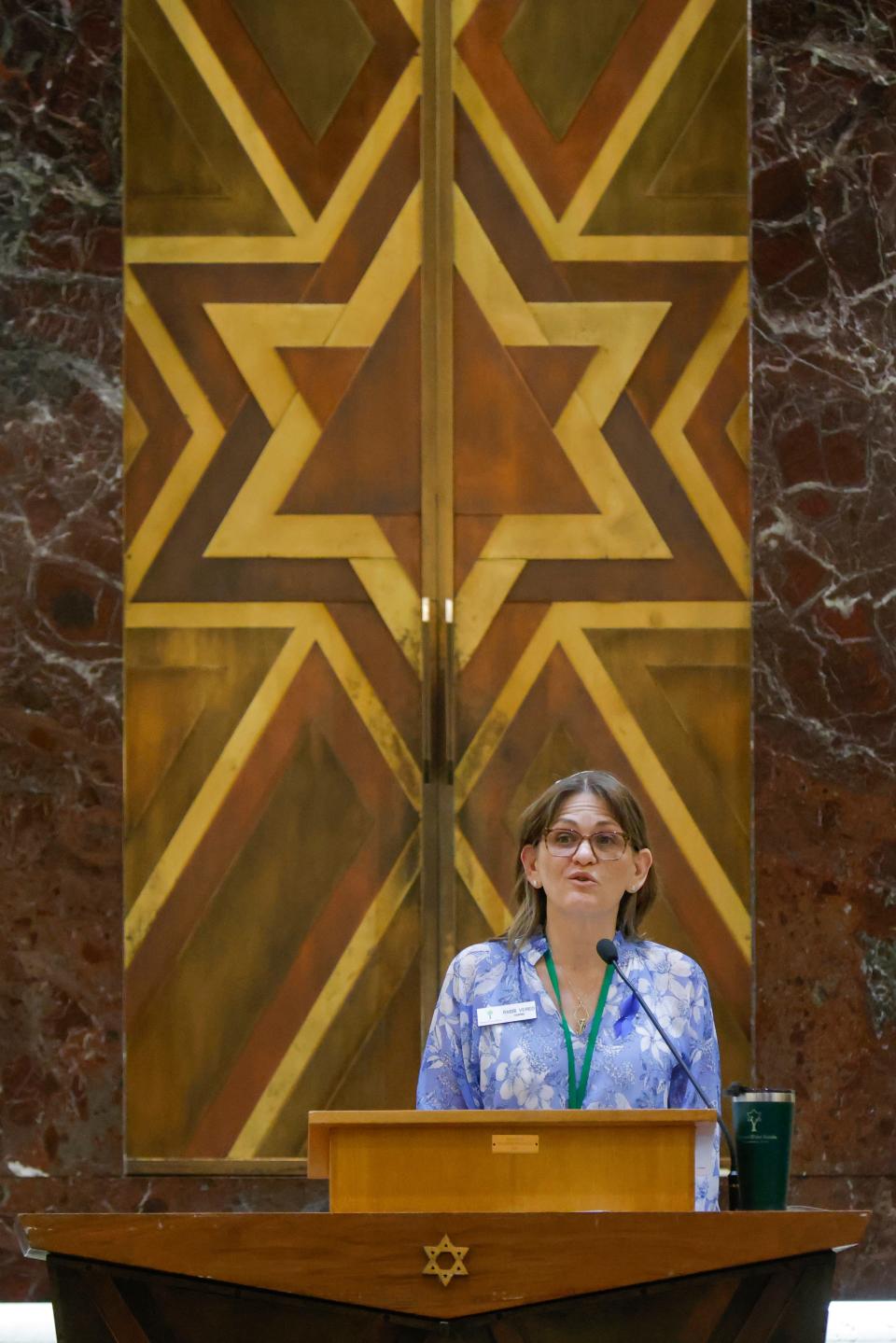Educators, experts offer tips on how to talk to kids about the war in Israel

CANTON − They've heard the news reports. Some probably have seen images that will give them nightmares from the current war in Israel.
How do you help children make sense of such violence?
Julie Zorn, director of the Chadash Community Hebrew Academy, which serves Jewish children in Stark County, said it's important that the approach be age-appropriate.
"The conflict between Israelis and Palestinians is complex with so many layers and nuances," she said. "It is a topic that is confusing and complicated for adults to understand, let alone young people. The conversation on how we talk to youth about such sensitive matters is first determined on their age and level of understanding.
"For younger students, the conversation should focus on celebrating differences, acceptance and inclusion and peace for all. For teenagers, we can break down the history of the land and how hate escalates over time from biases to taking violent action to the complete genocide of a people."
Zorn said it's also important that adults be honest with children, while also finding ways to be reassuring.
"When speaking to young people about any inexplicable crisis, it is important to create a safe space of honest conversation where they can ask questions," she said. "Monitoring their social media to prevent viewing horrific images and reading propaganda or hate language will also help. In addition, sharing the stories with youth about all the many people helping victims and the heroes that come to light is also very important."

Child & Adolescent Behavioral Health recommends limiting children's exposure to news
Zorn said Chadash Academy, which encompasses preschoolers through high school students, has not yet met this school year because of the Jewish holiday schedule. The attack on Oct. 6 took place during Shemini Atzeret/Simchat Torah, a holiday that celebrates the completion of the reading of the Torah for the year, and the start of the new cycle.
"I haven’t been face-to-face with our students yet this year, but I will tell you that Chadash always pushes peace and acceptance and helping others," she said. "When we come together, we will pray for peace for Israel and all people and discuss ways we can offer our support. That is just what we do."
Joseph French, executive director of the Child & Adolescent Behavioral Health, recommends parents limit their children's exposure to the news.
"During 9/11, when they kept showing the planes hitting the buildings, a lot of kids thought it was happening all the time," he said.
He also echoes Zorn in that any discussion should be age-appropriate, adding that parents should ask their children to talk about what they know.
"They should ask them about their emotions, if they're scared, and what they can do to help," he said. "It's also good to take away any misconceptions. The more we can be honest, without being gruesome, the better it is."
He also urges parents to have follow-up conversations with their kids to keep check on their feelings.

Catholic students study the Holocaust: Central Catholic teacher offers Nazi Holocaust class so future generations remember
Marilyn Feldman: 'What you discuss varies depending on the age of the child.'
Marilyn Feldman is a member of Temple Israel and a retired educator who works with the Ohio Council on Holocaust and Genocide Education.
"What you discuss varies depending on the age of the child," she said. "Obviously, teenagers are capable of understanding and processing truths that elementary or middle-schoolers are not. In addition, a lot depends on the political and social viewpoints of the parents/teachers. Some parents don’t leave the news on in their homes. Some don’t understand the broader picture and implications. Some don’t even care. "
Feldman added that it's important to stress to children that all human beings have the right to live in peace.
"It’s also important to stress that the tensions in the Middle East have been there for thousands of years," she said. "As Rabbi (David) Komerofsky said when antisemitic leaflets were found in Uniontown, the Jewish people believe in 'Tikkun Olam' − the healing of the world − not the destruction."
Feldman noted that Israel's existence as a homeland for Jews while being surrounded by enemies bent on its destruction has been a daily struggle. However, she is no fan of Israeli Prime Minister Benjamin Netanyahu.
"I don’t believe in what Netanyahu and his hard right government have been doing," she said. "As a Jew, I feel pity for innocent Arab families living in an area run by terrorists. As a Jew, I know that what happened must be met with repercussions."
Dahlia Fisher is director of external relations at the Maltz Museum of Jewish Heritage in Beachwood, which offers extensive educational programing for children and young adults on Cleveland's Jewish history and anti-hate. The museum also sponsors an annual "Stop the Hate" scholarship contest for youth.
"At the Maltz Museum, we define for students through our tours what it means to be an 'upstander,' bystander, or perpetrator," she said. "This is a time when caregivers can have the same discussion at home, helping young people define for themselves what role they want to play in everyday life as history unfolds around them.
"How can each of us participate in practicing kindness and compassion right now? As adults we can struggle with intense and layered feelings about what is happening. When we consider how to help our children process, we are also helping ourselves do the same. Taking care of ourselves as caregivers is important, too."
Fisher said the Maltz Museum has partnerships with several organizations that offer tools for parents and teachers to talk to children about complex issues. They include the Jewish Education Center of Cleveland, Facing History and Ourselves, and the Anti-Defamation League.
Zorn also recommends some educational sources which may be helpful:
The Anti-Defamation League: Empowering Young People in the Aftermath of Hate (In English and Español) | ADL
Education Week: How to Talk About the Israel-Hamas War: Resources for Educators (edweek.org)
"Finally, I think I should add that the emotional distress this puts on young people can be significant," she said. "It’s important for parents and educators to observe our youth and reach out if they feel a child is having difficulty."
Reach Charita at 330-580-8313 or charita.goshay@cantonrep.com. On Twitter: @cgoshayREP
Maltz Museum statement on attack on Israel
"We are living through history and watching it unfold. One day, our children and grandchildren will stand in a Jewish Museum like ours studying artifacts that teach them about this horrific war – a war that is reflective of historic Jew-hatred. The choices we make at this moment both individually and collectively matter. We are often asked at the Maltz Museum how could the Holocaust have happened? How could people have followed Hitler? When we study artifacts that teach us about history, we define for ourselves what it means to be a perpetrator, by-stander, or upstander. Every one of us can choose how to act now. What side of history will each of us be on? We condemn the terrorist attacks on the Jewish people of Israel by Hamas and encourage all people to stand up and speak out against the brutally cruel and utterly inhumane crimes targeting Jewish homes, families, children as young as babies, and the elderly including Holocaust survivors." − Board Chair Reneé Chelm and Managing Director David Schafer.
This article originally appeared on The Repository: Experts offer tips on how to talk to kids about the war in Israel

